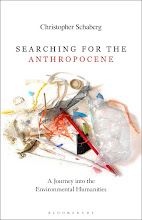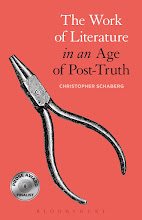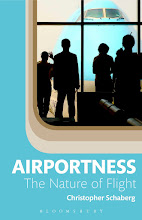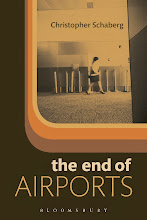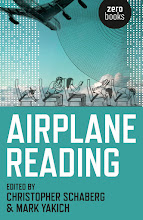
This is part two of my essay "The Work of Literature in the Age of the Office." (See part 1, below.)
--Part 2: Endless work, and the Work that can be Finished
If Mad Men is really about the contemporary moment and collusions of obligatory office work and personal screens, the contemporary office novel is really about a certain need for literature within what Joshua Clover, in his book on The Matrix, calls “the blunt quotidian of work; a nightmare as discomfiting for its ennui as its ensnarements.”
In the novels Then We Came to the End and Personal Days, what we read are two versions of the same story: each novel takes up the contemporary office space as a setting that spurs extra narrative material. However, this is not a simple matter of clever postmodern meta-fiction, but seems to have more to do with the purely productive ambiance of the office work at hand. In other words, even when these novels tell stories of boredom, banter, and wasted time—not working per se—the novels as novels maintain the necessity of (and a staunch belief in) both the finished literary Work and also the endless office work depicted therein. The literary Work and office work function as a double-jointed articulation, but one that reverses roles constantly, as I shall show below.
In The Work & the Gift, Scott Shershow argues convincingly for this irreducible bind between work and the Work:
On the one side, the daily exertions that are always done and never done, the labors by which one lives or, as it is said, makes a living. On the other side, the project or the poem, the opus, the oeuvre, of the Book: those achieved or imagined totalities… There will never be an absolute distinction between the two sides of the opposition, for to consider work in any sense is to of course also rebegin the Work of theorizing work: the unfinished labor of thinking its value, its necessity, its purpose, or its end(s).Shershow’s schema provides a useful frame in which to consider contemporary Works about office work. Literature about office work takes “making a living” as a subject, and then rewraps this quotidian labor in the very aura of the Work (i.e., the novel). Writing about office labor becomes a reflexive project, also about how a subject becomes book-worthy: work becomes a topic for the Work. Thus the novels do not only sample the seeming endless stream of office work; they also rely on a totality at hand, the Work of the novel. Each novel is complicated at (and by) this junction of endless work and the Work that is (or at least in theory can be) finished.
Ferris’s Then We Came to the End chronicles the downsizing of an ad agency at the turn of the 21st-century. A middle portion of the novel (pages 196–230) is devoted to the fragment of a novel-within-the-novel; it turns out that a peripheral character in the novel has been writing his own (internal, fragmentary, fictional) novel about the characters in the (actual) novel. This narrative layering underscores a problematical literary inability to capture the endlessness of work in the office: this work can never be completed—it never comes to an end (this is part of what makes it a comic or an absurd topic), and thus it is necessarily impossible encompass by the Work.
A novel about office work must therefore be about more than simply working in the office—for that is a boundless subject, a never-ending tunnel of tedium. (Thus, Mad Men wanders out into the domestic exterior of the “Sterling Cooper” ad agency: the office, in its endless work, is paradoxically insufficient for a TV drama—the Work of the show needs more than its endlessly working subject.) In Ferris’s novel, office work is not enough: there needs to be a character inside who has already deemed the office novelistic. The internal novel of is about a sort of transcendent literariness that exceeds office work, but also allows the office to be taken on as a subject. The fictive office worker, like the reader, must already know what is in one’s hands: the contents of a novel. The effect of this internal novel that takes up a middle portion of the book is that it elides the subject of workspace for the subject of novel-writing—there is a strange layer between the businessmen and the reader, and it is called a book. Can the endless work of office laborers be seen in literature, or is what we see always already mediated by the Work that appears idyllic, finished?
The setting of Ferris’s novel—the office space—is insufficient as a subject in and of itself: endless office work is replaced by the Work of the novel. In Then We Came to the End, the minor character Hank Neary is discovered toward the (apt) end of the novel to have written what can only retrospectively be understood as the inter-novel. The fictional office, therefore, contains a character who is already writing an inter-novel about the fictional workspace. The inter-novel forces a guise of coherence and completion—and posits narrative meaningfulness—to what for 380 pages has seemed to be little more than the dramatized minutiae of endless workaday office life. By placing a novel-within-the-novel, Ferris tethers endless work to the Work that is finished—and throughout, these oppositional forces are continually repelling one another.
For example, as if caught in the centrifugal force of narrative tangents, the second half of the book indulges in additional storylines. One of these storylines concerns the character Tom Mota, who is introduced as a borderline sociopath, or at the very least an oddball. Early in the novel, Tom begins wearing increasingly multiple company-pride polo shirts at once, layered ridiculously, and when he is confronted about this strange clothing choice, he states with unsubtle irony:
“You don’t know what’s in my heart,” said Tom, pounding his fist against the corporate logo three times. “Company Pride.”Tom becomes unhinged in the office, and is rapidly fired (this happens within the first 25 pages of the novel). In the second half of the novel, though, Tom Mota returns with a vengeance, in a clown suit and toting a gun. The office space here is lampooned as a place for over-determined dramatic action. On the one hand, we might be tempted to call this narrative move an act of bad faith on the part of the novelist, as if Ferris is admitting that office work does not make an interesting enough story on its own—you need a man in a clown suit with a gun. On the other hand, we might understand this over-determined dramatic action as interesting in its own right as narrative excess: as a sort of reverse “job spill” wherein outlying stories obscure the setting (and the work) at hand. We might even go as far as to suspect that the Tom Mota subplot functions as a narrative tangent, a distracting vector that moves away from the endless work of the office in favor of a story with a tidy ending. Thus the laid off and disgruntled worker who returned to the office and went on a shooting spree is provided an absurdly poetically-just conclusion: we learn in the last pages of the novel that Tom Mota, after recovering from his rampage, joined the Army—and was “killed by friendly fire in Afghanistan.” This poetic justice might have been hinted at in Tom Mota’s near palindrome name, a signal for symmetry that, once again, obscures the office work that, because it is endless, can never be reflected in a finished Work which must venture outward, beyond the businessman, in order to end.
I do not mean to isolate the Tom Mota subplot of Then We Came to the End as an inherently poignant aspect of the novel. What the Tom Mota subplot demonstrates, rather, is a reflexive necessity for the office narrative to escape the gravitational force of its more immediate atmosphere: the workspace. The novel ends in this way, notably beyond the office: what Ferris provides is a phenomenally unspectacular (if also mildly utopian) conclusion of the cast of office characters attending a literary reading on the University of Chicago campus, where the peripheral character Hank Neary is giving a reading of the story-within-the-story. Again, I want to insist that this is not (or not merely) postmodern meta-fiction; instead, this is an embedded Work of literature that takes the reader (and the author) away from the alleged subject of work. It is curious that when the main characters of the story—who are represented by a first person plural narrator (“We were fractious and overpaid. Our mornings lacked promise….”)—find out that Hank Neary has “published a book,” they remember him as “a failed novelist.” This is an aporia that the novel cannot reconcile: the actual literary character of the novel is twice disavowed, once in words (Hank as a simultaneously “published” and “failed novelist”) and again in the rejected setting (the novel ends not in the office, but at a University bookstore). Then We Came to the End represents a paradox: literature is seen to be that thing with an end made possible by endless work—literature becomes the Work apart, utterly incongruous with the day-to-day grind of the office.
Ed Park’s Personal Days is in many ways remarkably like Then We Came to the End. Park’s novel tells the familiar story of an office space under siege by abstract economic shifts and corporate buyouts, and the narrative employs a similar first person plural narrator in the first section of the novel: “Our company was once its own thing, founded long ago by men with mustaches.” By turns, Personal Days achieves a different formal approach than Then We Came to the End, but the novel becomes caught up in a similar paradoxical situation in relation to its own novelistic conceit. While moving at a faster clip than Ferris’s novel, Park’s narrative sags under an excess of sign systems that are ubiquitous in office environments: e-mail riffs, Microsoft Word jargon, HTML code—even an actual picture of a Post-It note dropped somewhat arbitrarily into the prose. The figure of the Post-It note is particularly curious, arbitrary not for what it says, but rather in its isolation as a secondary media form. We might rightly ask why Park does not carry this tactic to the extreme and include pictures of all the other office detritus common to this space: screen savers, stapler logos, dot-matrix printer page perforations, office chair tracks in carpet—the list of items is in principle endless, and arguably aesthetically interesting. Yet, if the office space is a sort of ready-made art object, what makes the novel a necessary or useful form of representation? Indeed, one vexing question about Personal Days is why it needs to take the form of a novel at all; its format as evinced by the contents reveals that it is perhaps most interested in the computer programs that shape everyday life in the office:
I. Can’t Undo 1One cannot help but wonder if a more immersive aesthetic production could have been achieved in an installation involving the computer commands, not unlike David Byrne’s “Envisioning Emotional Epistemological Information,” stylized PowerPoint presentations that utilize all of the preprogrammed styles and formatting to show how medium and message are inescapably intertwined in the ubiquitous software. As it is, the three parts of Personal Days each take a quite different form. Part one involves short sections under pithy, workspace allusive headings such as “The cc game” and “Multiple-desk syndrome.” Part two unravels in the style of Wittgenstein’s Tractatus, an elaborated (if at times enigmatic) outline that accumulates to continue the story of the office. Part three is comprised of one very long email with no paragraph breaks and constant reflections on the email itself as a communicative medium. Within each of these narrative forms, sub-forms appear. One of the more curious sub-forms is aggressively yet ambiguously literary.
II. Replace All 85
III. Revert to Saved 191
As in Ferris’s novel, Personal Days contains a text-within-the-text. In this case, in the middle section—“II(E)”—of Personal Days, one of the office workers discovers a cryptic notebook in a recently fired employee’s desk. The laid off co-worker was named Jill; the notebook left behind therefore carries the intertextual title “The Jilliad.” The notebook contains pages and pages of corporate aphorisms and maxims for the office worker, for example:
Don’t be the one who says, I told you so. Tell them so to begin with. Tell them often.
—Office Politics 101, by Randall Slurry
Think of the office as an ocean liner. Are you the captain? A passenger? Or the person who plays xylophone for the lido deck band?
—Climbing the Seven-Rung Ladder: The Business of Business, by Chad Ravioli and Khâder Adipose
Confusion is inevitable. Ride the Wave.
—The Manager’s Bible: The New Memory System for Daily Insights, by Wayne V. Hammer with Juliette Earp
The office is an endless setting for Personal Days; the office only gains its novelistic adequacy through external (and structurally unavailable) textual material. The Work lies outside of actual office work—yet the Work must be discovered or located inside the workplace, in order to make the subject literary. We arrive again at the bind between work as an endless subject, and the Work as an object, discrete and able to be finished. When the office novel becomes extra literary, the specter of the finished Work distracts from the real endlessness of work.










